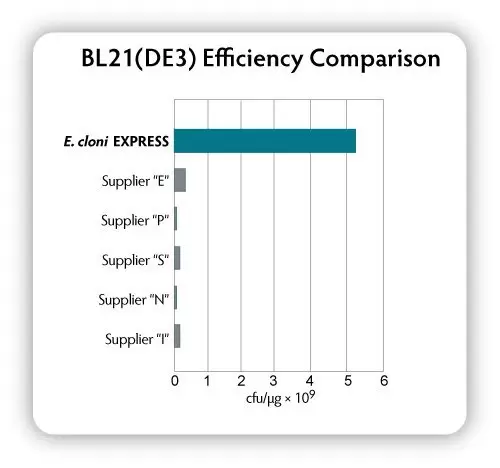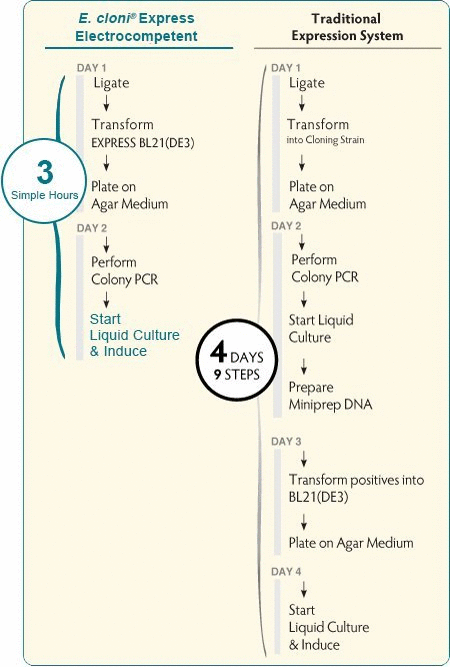E. cloni EXPRESS BL21(DE3) Electrocompetent Cells (DUOS) > 5 x 10e9 cfu/ug
| Specifications | |
|---|---|
| Competence: | Electroporation Competent |
| Application: | Routine Protein Expression |
| Organism: | E. coli |
Product Description
- High-efficiency BL21(DE3) strain
- Clone and express in the same cell
- Best value for routine protein expression with any E. coli T7 expression vector
- Construction of comprehensive expression libraries and stable cloning of genes
- Also available as E. cloni EXPRESS BL21(DE3) Chemically competent Cells
E. cloni EXPRESS BL21(DE3) Electrocompetent Cells are ideal for routine protein expression applications. For expressing toxic proteins, we recommend Lucigen’s OverExpress™ C41(DE3) and C43(DE3) Competent Cells.
The Kit contains E. cloni EXPRESS Electrocompetent Cells in DUO packaging (2 transformations per tube), Expression Recovery Medium (lactose minus), pUC19 Positive Control Plasmid, and a complete protocol.
Features
Transformation Efficiency ≥ 5 x 109 cfu/µg pUC19
Genotype
F- ompT hsdSB (r- mB-) gal dcm (DE3)
Supporting Data
E. cloni EXPRESS BL21(DE3) Electrocompetent Cells are the first to offer high efficiency cloning and high level protein expression in the same cell. Cloning efficiencies are increased 25-1,000 fold relative to competitors’ preparations of BL21 cells (Figure 1), which is essential for construction of complex expression libraries. The unprecedented transformation efficiency of E. cloni EXPRESS Electrocompetent Cells (> 5 × 109 cfu/µg) eliminates the need for plasmid transfer from the cloning strain to the expression strain, saving days of work in a typical cloning and expression experiment (Figure. 2).

Figure 1. Transformation efficiency comparison of commercially available BL21(DE3) competent cells.

Figure 2. Comparison of cloning and protein expression procedures.
Custom Configurations
Please contact us for more information related to custom competent cell services or to receive a bulk quotation.

